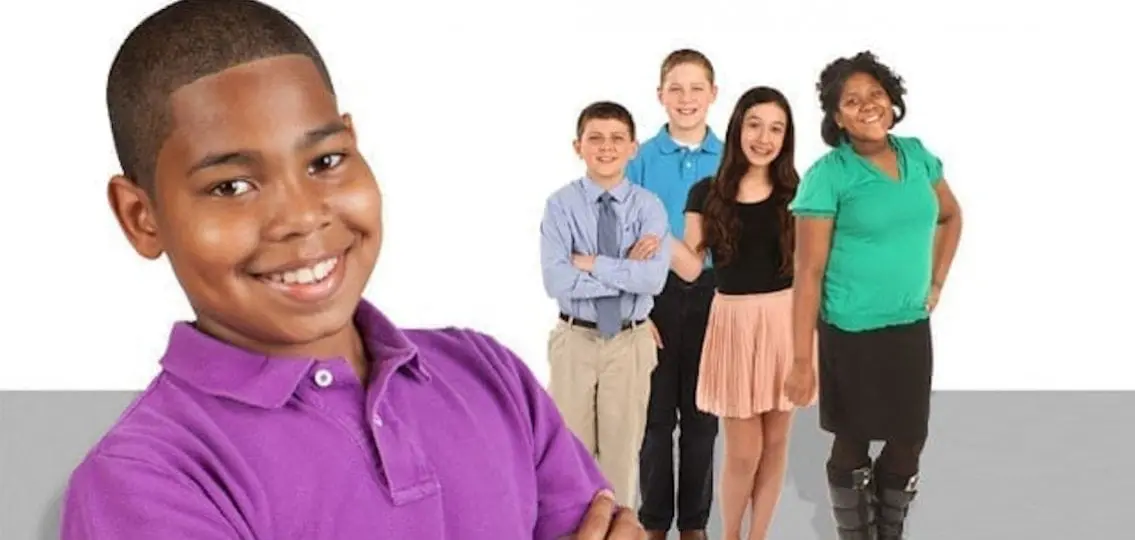Talk to parents who’ve been through middle school with their children and they will lament that they had no idea what to expect. The changes kids experience as they transition from elementary school to middle school are seismic.

Here’s the good news! You do not need to feel in the dark, because experts know what to expect. One of our favorite psychologists—Dr. Lisa Damour, author of the New York Times bestseller Under Pressure—shares her top 10 list of what to expect in middle school. For all these things middle schoolers do, she explains why it happens, what we might be tempted to say or do, and finally, a more effective option.
What to Expect in Middle School:
1. Bedrooms-turned-hideouts
Why this happens: Tweens and teens naturally start to pull away from their parents. And they often do so by becoming very private when they’re home.
A tempting reaction: Presuming that, behind closed doors, tweens are up to no good.
A better reaction: Granting privacy and making your expectations clear. For example, “You need to join us for dinner and help clean up the kitchen. Chatting’s optional; civility isn’t.”
2. Surgically-attached phones
Why this happens: Your tween wants nothing more than to connect with friends.
A tempting reaction: Allowing unchecked phone use that, research shows, stunts budding social skills.
A better reaction: Banning phones (theirs and yours) from settings that foster interpersonal skills, such as at meals, in the car, on walks, or over vacations.
3. Difficulty sleeping
Why this happens: A biological phenomenon known as sleep-phase delay causes pubescent tweens to want to stay up later and sleep in longer. On top of that, the light emitted by digital devices suppresses the natural hormones that help humans feel drowsy.
A tempting reaction: Thinking that kids who were good sleepers in elementary school will figure out how to get enough sleep in middle school.
A better reaction: Avoiding over-scheduling, helping get homework started as early in the evening as possible, and making sure technology shuts down at least a half-hour before bedtime.
4. Emotions on steroids
Why this happens: Hormones usually, and wrongly, get blamed; we now know that teenagers’ brains react to emotional input more intensely than the brains of children or adults.
A tempting reaction: Dismissing your tween’s magnified feelings as mere “drama.”
A better reaction: Validating your middle school student’s emotions while pointing your tween toward positive coping strategies.
5. Eleventh-hour homework crises
Why this happens: Middle school brings on big projects that unfold over many weeks.
A tempting reaction: Harping on your tween for being disorganized.
A better reaction: Grabbing a calendar and helping your middle school student break the next big assignment into manageable steps that can be checked off along the way.
6. Frenemies
Why this happens: Tweens belong to complex social webs that include classmates who run hot and cold.
A tempting reaction: Imploring your middle school student to simply avoid hurtful peers.
A better reaction: Helping tweens strategize about how to keep a safe and polite distance from tricky members of their social circles.
7. Academic disappointment
Why this happens: Schoolwork gets harder, teachers give more pointed feedback, and students become increasingly aware of their peers’ talents.
A tempting reaction: Salvaging your tween’s self-esteem by saying, “It’s okay, I was bad at math, too” or “She may be better than you in language arts, but you’re great at other things!”
A better reaction: Reminding your middle school student that the brain is like a muscle: effort makes it grow.
8. Complaining about school
Why this happens: Research tells us that elementary students usually have more freedom at school than middle school students—a fact that rubs most tweens the wrong way.
A tempting reaction: Assuming that tweens can’t handle annoyance at school.
A better reaction: Supporting your middle school students’ efforts to address frustrations and providing a sympathetic ear when there’s no easy solution.
9. Crushes
Why this happens: Middle school gossip centers on “who likes whom” and even tweens who aren’t interested in romance can get caught up in the swirl for fear of being left out.
A tempting reaction: Changing the subject when crushes come up or telling tweens they’re “too young for that kind of stuff.”
A better reaction: Sharing your values for how your tween should be treated, and should treat others, when romance comes along.
10. A dazzling new mind
Why this happens: Middle school students graduate from concrete to abstract reasoning capacities. This means that they can now consider theoretical concepts, reflect on their own thoughts, and draw inferences about other people’s motivations.
A tempting reaction: Bristling when your middle school student starts questioning everything.
A better reaction: Enjoying, and learning from, the new insights your tween has to share.





